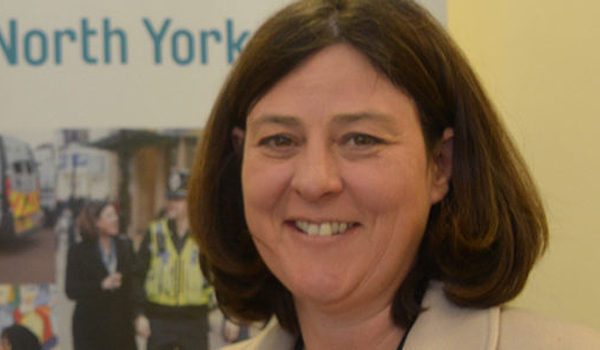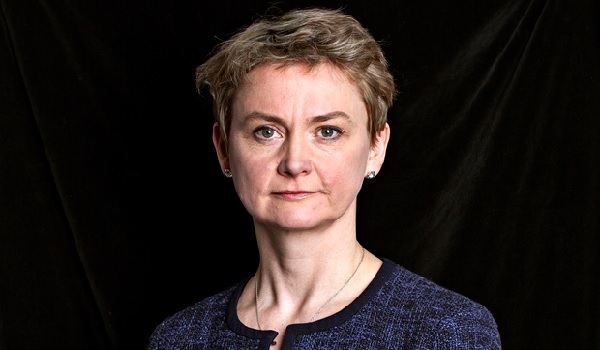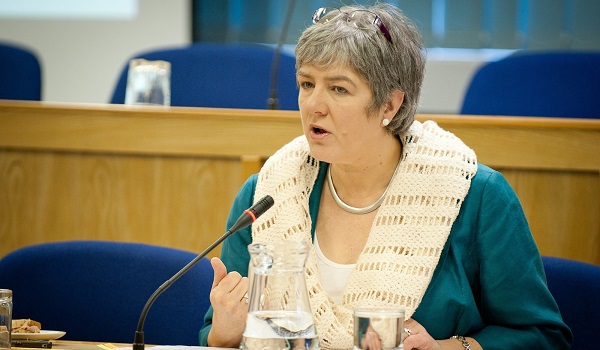Rural Britain is ‘in fear of crime, being let down and feeling ignored’
Rural communities are “living on the edge” – in fear of crime, unhappy with the police and feeling isolated and vulnerable, according to the 2018 National Rural Crime Survey.
Residents in rural areas have a worse perception of policing than those living in urban areas, and they feel the service they receive is getting worse.
The poll – the second of its kind and carried out by independent research company The Buzzz on behalf of the National Rural Crime Network – was damning about police performance.
Only 27 per cent of over 20,000 respondents in England, Wales and Northern Ireland said their local police are doing a good job – 11 per cent lower than when the same question was asked in 2015 and lower than the national figure from the Crime Survey for England and Wales, which found that 62 per cent rate the police in their area as good or excellent.
The NRCN said farmers and rural-specific businesses are living with, and in fear of, crime – the survey showed that 69 per cent of farmers and rural-specific business owners have been a victim of crime over the past 12 months with 60 per cent saying they are fairly or very worried about becoming a victim of crime in the future.
Chair of the National Rural Crime Network (NRCN) and police and crime commissioner for North Yorkshire, Julia Mulligan, said the survey must be a wake-up call for those in positions of power.
“These results are stark and worrying. Crime is up. Anger is up. Frustration is up. Trust is down. Those rating the police as good is down. With 10.3 million people living in rural areas, these are trends we can no longer ignore,” she added.
The survey, carried out between April 18 and June 10 this year, showed that rural communities believe crime is a big problem, but many offences go unreported.
Compared to when the NRCN carried out its first poll in 2015, the number of crimes going unreported is up by a third for residents and two-thirds by businesses in rural communities – mainly because they do not feel the police and criminal justice system understand the issues or do anything about them.
“Every decision affecting national policing moving forwards, from funding to safety and security, has to be set against the findings of this report,” Ms Mulligan added.
“This report needs to be listened to in the future when decisions on funding are being made, we can no longer continue to see funding being sucked from rural areas to urban. It simply isn’t good enough and politicians need to sit up and listen.”
Ms Mulligan called on chief constables to change the way rural areas are policed.
National Police Chiefs’ Council Lead for Rural Affairs, Deputy Chief Constable Craig Naylor, said: “The results from the survey provide further insight into the concerns of rural communities. All police chiefs have committed to strengthening the response to rural and wildlife crime, focusing on the links to serious organised crime and with a lead officer in each force. Lead officers form part of a network working with NRCN, National Farmers Union (NFU), and Association of Police and Crime Commissioners (APPC).
“I encourage our rural communities to continue to be our eyes and ears, report crime and suspicious incidents, and engage with local police to help keep our rural areas safe and prosperous.”
However, the survey showed some of the most common concerns are not solely policing matters, like fly tipping and speeding.
Fifty-seven per cent of respondents said they had seen evidence of fly tipping in the past year, topping the list of offences, with speeding second at 32 per cent.
The NRCN – established in 2014 and supported by 30 police and crime commissioners and other rural bodies – said both are clearly important for rural communities, but are not solely policing issues with responsibility shared among local authorities and other agencies.
Other findings include that crime, and the fear of crime, is leading to emotional strain and a loss of confidence, particularly among young people, families and farmers.
A third of rural people believe that crime has a moderate or great impact on their lives.
“This survey busts the myths about who we tend to think of as vulnerable when we think of rural crime, and shows that farmers, young people and hard working families are most affected and feeling most vulnerable,” the NRCN said.
And the financial strain of crime is significant – the average financial impact of crime on rural-specific business owners is £4,800, 13 per cent up on 2015.
The NCRN said rural communities are not understood, and services do not match need – too often rural communities are considered safe and prosperous places.
It added that this preconception stops serious needs analysis being done.
“When the lid is lifted it is clear rural people and businesses are fundamentally misunderstood,” said the NRCN.
“We believe this is true of many areas, not just crime and policing, and further work needs to be done to assess community safety and service provisions policy across the board in a specifically rural context.”
The Network produced ten recommendations as a result of the survey:
- We need chief constables to change the policing of rural communities;
- We need to do more to understand rural crime and its impact;
- We need to put that understanding into practice;
- We need to put more focus on farmers and specific rural businesses;
- We need to work together on organised crime;
- We need the criminal justice system to understand rural communities;
- We need justice to be done and be seen to be done for rural communities;
- We need to make reporting crimes easier;
- We need to do more to help rural residents and businesses with crime prevention; and
- We need to ensure victims of fly-tipping are not left to pay the price of others’ actions.
Ms Mulligan concluded: “I will continue to fight for rural communities, who should not have to put up with sub-standard services just because of where they live. This simply cannot be tolerated. Despite the passionate and professional police officers working incredibly hard day-in, day-out, them and the communities they serve are being let down because priorities lie elsewhere.
“The results of the National Rural Crime Survey, and the wider feedback from rural communities, should not be underestimated. It is incumbent on policing, partners and on government and us all to listen, and to act.”
In total, 20,252 responses were received from across England, Wales and Northern Ireland.







